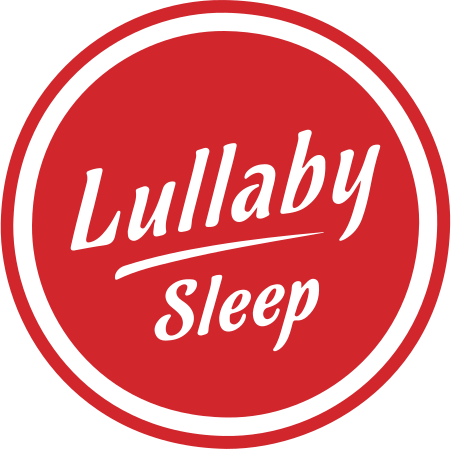Anybody who has struggled with snoring has probably googled anti-snoring devices in the middle of the night after being kicked out of bed by their partner or waking themselves us from the intensity of their own snores. There’s nothing more tempting than a flashy ad offering to cure your snoring for an extremely reasonable price, but are cheap anti-snore devices worth buying? Dr Levi gives his expert opinion on 10 of the top anti-snore devices on the market for under $100.
10 Snoring Cures Under $100
-
Mouldable Mouthpiece ($2 – $15)
How Do They Work?: Mouldable anti-snoring mouthpieces are immersed in boiling water in order to make the plastic malleable, before being placed in the mouth and ‘moulded’ to fit your mouth shape. The idea is that the device brings the lower jaw forward to open the airway, in the same way as Mandible Advancement Splints (MAS).
Dr Levi’s Verdict: Many Sleep Clinic patients have tried these devices and found that they have indeed worked to reduce their snoring for two or three nights before the plastic loses its shape and a new device is needed. Although they work to reduce snoring during this period, many patients wearing them still are not getting a good night’s sleep because they are so uncomfortable to wear as they have not been truly designed to fit their mouth. Many people also find that the device falls out while they are asleep, adding to their discomfort. If you do try one of these devices and they help to reduce your snoring, that is probably an indication that you are a good candidate for a professionally fitted MAS as a long-term solution.
-
Chinstrap ($5-$50)
How Do They Work?: The idea of anti-snore chin-straps is that they hold the lower jaw in place so that the mouth stays closed and the lower jaw stays forward, keeping the airway open.
Dr Levi’s Verdict: One of the major issues with using chin straps is that many people cannot breathe through their nose properly, meaning that if their mouth is forced closed, they are actually not taking in enough oxygen. While these devices are very common online, they are never discussed as viable treatment solutions at any industry conferences or seminars and sleep professionals do not generally prescribe them as there is no reliable evidence of their efficacy.
-
Nasal Dilators – ($2-$5)
How Do They Work?: These small clip-on nose devices work to open up your nostrils to allow more air to enter through the nose.
Dr Levi’s Verdict: Like many of the other gadgets on the market, these probably aren’t going to do you any harm, but they will only improve your snoring by a maximum of about 5% and often cause significant discomfort. Allowing a little more air to enter through the nose does not address the actual cause of snoring, so while they may help, they will not solve your problem. If you are going to try a nasal dilator, the most effective is the MUTE anti-snoring device, which is more effective and comfortable than the super-cheap options online.
-
Anti-Snoring Nasal Spray – ($10-$20)
How Do They Work?: These sprays work by reducing nasal congestion to improve airflow.
Dr Levi’s Verdict: Much like the nasal dilators, these sprays will most likely have only a very modest effect on snoring. They might provide relief for very minor problems but will not address real snoring problems. If you are determined to try a spray, ENT’s can prescribe medical strength sprays which will have a noticeably larger effect than something bought online or off the shelf without a prescription.
-
Anti-Snore Lozenges ($10-$15)
How Do They Work?: These work by releasing a combination of chemicals designed to lubricate the throat in order to minimise the vibration of the soft palate.
Dr Levi’s Verdict: These lozenges will most likely have no effect at all on your snoring. They may have a placebo effect, making you feel that you have slept better, but your partner will probably tell you that you snored just as much as always.
-
Anti-Snore Oral Strips – ($10-$15)
How Do They Work?: These work in the same way as lozenges but they are placed at the back of the throat.
Dr Levi’s Verdict: Their efficacy will be equally as low as that of the lozenges.
-
Nasal Strips ($9-$12)
How Do They Work?: Nasal strips, like nasal dilators, work to open the nose by squeezing the bridge of the nose.
Dr Levi’s Verdict: They are pretty much the same as nasal dilators in that they will probably offer an extremely modest, most likely unnoticeable effect on snoring.
-
Tongue night aid ($50)
How Do They Work?: These devices are attached to the tip of the tongue in order to pull your tongue forward during the night, preventing it from flopping backward and blocking your airway.
Dr Levi’s Verdict: This is a treatment that does actually have some industry support although it is not commonly used by sleep specialists. There is a big issue with the device staying in place and it can easily fall or slip during the night. It is mainly used for people who have a full upper and lower denture and are not happy with using a CPAP machine.
-
Throat Rinse ($8-$15)
How Do They Work?: Throat rinses work on the same principle as throat lozenges, containing chemicals that lubricate the tissue at the back of the throat.
Dr Levi’s Verdict: You will most likely not notice any improvement in your snoring.
-
Anti-Snoring Pillow ($40-$400)
How Do They Work?: Specially moulded pillows aim to position the head in such a way that holds the jaw and tongue in place, keeping the airways open.
Dr Levi’s Verdict: There is no research to suggest that a pillow can cure snoring, although there is a discussion about using sleep position to improve snoring. While it is definitely a good idea to have a good quality, supportive, memory foam pillow, buying a dedicated ‘snore pillow’ is not worth the price.
If you are interested in reading a first-hand account of using these devices, a British journalist tried many of those listed in this article himself and documented his experiences here.
For professional treatment for your snoring that actually works, book a consultation with Dr. Levi himself or learn more here.

